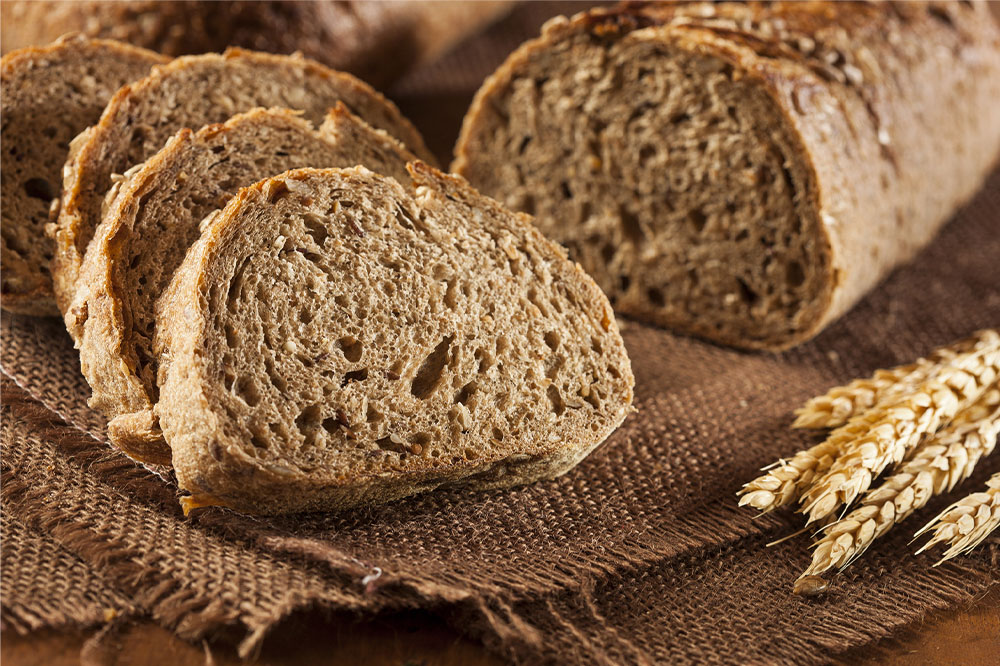Celiac Disease – List of Foods to Avoid
An autoimmune ailment, celiac disease occurs when the small intestine’s lining is damaged due to the immune system’s reaction to gluten. People suffering from this condition should avoid foods containing gluten, since it creates an imbalance in the functioning of the stomach and creates antibodies. These antibodies harm the mucosa or lining of the small intestine. It is important to know the list of foods to avoid for celiac disease.

What foods should be avoided by celiac disease patients
One should stick to eating gluten-free meals to manage celiac disease. Common foods to avoid for a person with celiac disease are listed below:
Wheat-based products
It is very important to avoid products made of wheat, for example, bread, pasta, cereal, and baked goods made with wheat flour.
Barley
Be extra cautious and avoid soups and stews since barley is used as one of their ingredients.
Fried foods
Fried foods often contain a coat of wheat flour to add a crispy texture, so always look for gluten-free fried food whenever you choose to eat them.
Sauces and condiments
To add flavors to food items, people use sauces which often contain wheat. Many condiments also contain wheat, including soy sauce and teriyaki sauce.
Dairy products with added gluten
Few dairy products are fortified with additional ingredients, such as flavored yogurt and ice cream, which may contain gluten; hence, always look at the ingredient list to make sure it’s free from gluten.
Some cereal and grain flours
A few cereals and grain flours, such as semolina, contain gluten. They should be avoided to ensure the food you eat is gluten-free.
Processed meat
Those suffering from celiac disease should avoid eating processed meat as they contain gluten.
Apart from the list mentioned above, many other food items contain gluten. Those with celiac disease should carefully read food labels and choose gluten-free alternatives. It is always a good idea to talk to a registered professional who can help you plan a healthy and balanced gluten-free meal plan.
Why should the foods mentioned above be avoided?
Celiac disease patients can experience severe side effects if they do not get diagnosed accurately and continue eating foods containing gluten. This can result in chronic inflammation, which can cause the following complications:
Weakened immunity
Your immune system has fewer resources to deal with an acute attack, like a chronically dangerous infection.
Additional food sensitivities
Lactose intolerance is a common complication of untreated celiac disease. This will worsen if you don’t pay attention to such intolerance.
Scarring and ulcers
Ulcers in the small intestine can occur due to severe inflammation. One may also experience scarring in the intestine as a consequence. Your intestine can narrow down due to excessive scar tissue, resulting in bowel obstruction.
Irrespective of any symptoms, it’s always safe to see your physician regularly and discuss any health-related issues. It would always be easier to address any condition in the early stages and get a plan of treatment as soon as possible.
Diagnosing and managing celiac disease
A blood test used to identify certain antibodies linked to celiac disease is usually used as part of the diagnosis. To confirm the diagnosis, a small intestinal biopsy may also be performed. Once a person is aware of the disease in the earlier stage, managing the symptoms is easier. After getting diagnosed, one must follow a strict meal plan and be aware of foods that can cause celiac disease flare ups.
Create a go-to home menu to prevent eating foods not allowed for celiac disease patients. An individual should look at a few recipe books and come up with some easy recipes they would like to eat often. Make it a habit to keep those ingredients on hand so you can always eat carefree.
If one can’t find anything else to eat or they are unsure what to eat while away from home, keep a few gluten-free snacks in the car, bag, or desk at work.
Choose a few of your favorite places where you know you can safely order certain meals or where the gluten-free menu is reliable. Before you arrive, look at the menus online and, if necessary, ask the staff if they can accommodate gluten-free meals.
Always carry gluten test strips if you are unsure about a food’s gluten content.
Around one percent of people worldwide are affected by celiac disease. Although it can occur at any age, those between 30 and 50 are the most frequently diagnosed. Receiving an accurate diagnosis and knowing what foods to avoid for celiac disease can help in managing the symptoms. One can also manage the symptoms by making lifestyle changes. Proper exercise and physical fitness can help improve your lifestyle too. Connecting with other patients can help a person develop more knowledge about their symptoms. Doing so can help the family cope with the pressure of dealing with such a condition. Lastly, one should seek adequate guidance from their physician to manage the symptoms of such a condition.




